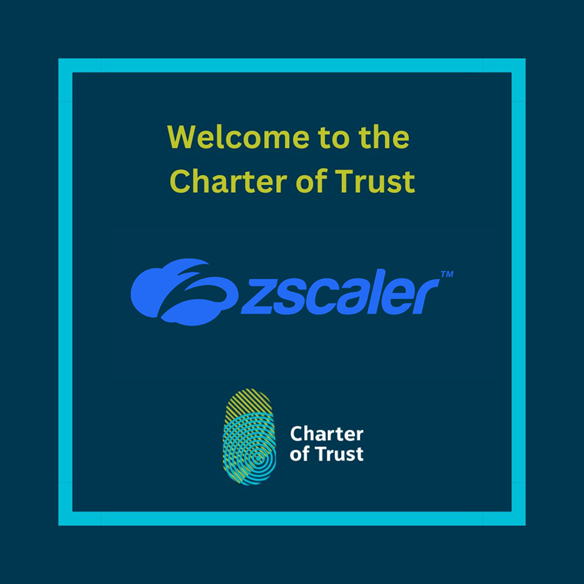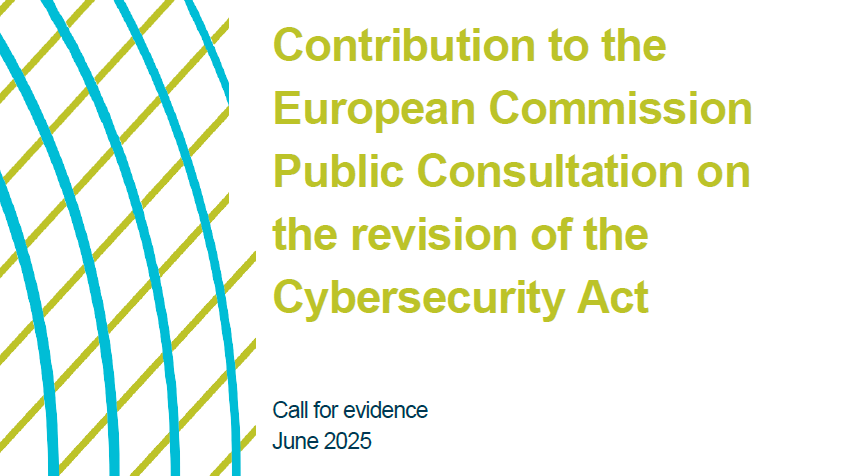No private company can face the monumental cybersecurity challenge alone. Now is the time for the public and private sectors to step up their collective efforts to improve nations’ cybersecurity for decades to come. The Charter of Trust is one of the key platforms to achieve this.
by Jonathan Sage, Cybersecurity Policy Europe, IBM
As our dependency on technology continues to grow so will the scale and sophistication of cybersecurity threats. For businesses, the intensification of cybercrime can be explained by Sutton’s law: that’s where the money is. The cost of cybercrime – already in the billions of dollars – rises each year and continues to increase in frequency, scope, and severity of impact.
While some attacks are costly and inconvenient, others can be crippling. With cybersecurity quickly becoming a new battleground for state competition, businesses and government share a collective responsibility to collaborate on preventing cyberattacks that could have a devastating impact or prompt national or global crises. We must join forces now to shore up the security of the critical infrastructure that keeps our society functioning.
As a leading enterprise security firm, IBM is uniquely positioned to help. Our teams use cloud and AI-powered software to manage 150 billion cybersecurity events each day for more than 17,000 commercial and government clients worldwide. Drawing on this breadth of expertise and capabilities, IBM is ready to do its part to help build enduring cybersecurity.
In a recent meeting with U.S. President Biden and members of his Cabinet, IBM’s Chief Executive, Arvind Krishna had in-depth discussions on how America’s digital defenses can be strengthened, making five key commitments that IBM is pledging to help address this imperative, which align well with IBM’s engagement as a founding member of the Charter of Trust:
1. Building a more robust and diverse cyber workforce
With nearly 500,000 unfilled cybersecurity jobs across the U.S. (Source: NIST), IBM is going to help prepare more American students and workers for those vital roles by training more than 150,000 people in cybersecurity skills over the next three years through a range of programs, such as SkillsBuild. Workforce issues, training and diversity are key elements in the Charter of Trust’s Principle 6, “Education”. We also will partner with more than 20 Historically Black Colleges & Universities to establish Cybersecurity Leadership Centers to build a more diverse U.S. cyber workforce.
2. Measuring progress and results
We need to go beyond cybersecurity commitments and focus on measuring tangible progress and results. Measurement tools already exists in Environmental, Social, and Governance (ESG) reporting. In line with Principle 1 of the Charter of Trust, “Ownership for cyber and IT security”, IBM is calling for the establishment of voluntary public reporting standards on cybersecurity practices. We believe the cyber framework developed by the National Institutes of Standards and Technology (NIST) could serve as a strong starting point for building such a reporting system.
3. Protecting critical infrastructure
Dealing with a cybersecurity crisis is a matter of when, not if. To help critical infrastructure organizations better prepare for and recover from ransomware attacks, we are announcing IBM Safeguarded Copy—a new data storage solution that can shorten the time it takes for organizations to recover from days to hours. IBM is already working with industries that operate critical infrastructure and will expand this offering to other clients.
4. Accelerating quantum-safe cryptography
While quantum computers will help solve new categories of problems that are beyond the reach of even today’s most powerful traditional computers, they will also make our current encryption methods obsolete. As we prepare for a quantum world, IBM is committed to developing and deploying new, quantum-safe encryption methods such as lattice-based cryptography.
5. Securing the Technology Supply Chain
Finally, IBM participates in an effort led by the National Institute of Standards and Technology (NIST) to develop a comprehensive framework to improve the security of the technology supply chain, reflecting the goal in Principle 2 of the Charter of Trust, “Responsibility throughout the digital supply chain”. This work builds on IBM’s engagement with NIST on software supply chain security following the U.S. President’s recent cybersecurity executive order, and it also will include a focus on open-source technology in which IBM has decades of expertise.
Protecting the digital economy: A concerted effort
As we have seen in just the past few months, cyberattacks can cause widescale disruption, economic upheaval, and even physical damage. If nothing is done, future attacks could become even more destructive and impact the power, transport, and communications systems we all depend upon to live and work.
IBM is already taking action on many fronts to protect the digital economy – from keeping our data secure, to helping cyber-defenders become as collaborative as cybercriminals, to inspiring a new generation to pursue careers in cyber, and more.
That said, no private company can face this monumental challenge alone. Now is the time for the public and private sectors to step up their collective efforts to improve nations’ cybersecurity for decades to come. The Charter of Trust is one of the key platforms to achieve this.


You may also like

Charter of Trust Welcomes Zscaler
Zscaler is a leading cloud enterprise security provider helping global businesses accelerate their digital transformation by becoming more agile, efficient, resilient, and secure.
With Zscaler as a partner in the Charter of Trust, we aim to strengthen global cyber resilience through trust – by fostering actionable collaboration between industry leaders, governments, and public-private platforms. Zscaler brings robust expertise and innovation to the table, making it the ideal partner to drive this mission forward.
“Zscaler is excited to drive meaningful change alongside our new partners, laying a foundation of trust essential for successful digital transformation,” said Sam Curry, Zscaler CISO. “In today’s world, the need for reducing inherent trust and default access has never been greater. To truly stay ahead of ever-evolving threats, we must unite as a coalition of practitioners. Cyber attackers aren’t taking breaks, and with advancements like artificial intelligence, quantum cryptography, and emerging technologies on the horizon, collaboration is the key to securing the future.”
“We are proud to welcome Zscaler to the Charter of Trust. Their focus on cybersecurity innovation and commitment to openness reflect our shared ambition to create a safer, more resilient digital future. Together, we’ll strengthen trust, transparency, and security across the global digital landscape.” highlighted Dr. Summit Chada, Charter of Trust Co-Chair and COO Group Security & Business Lines CISO at Atos.
“With Zscaler as a Partner of the Charter of Trust, we believe that we can strengthen the global commitment to secure digital transformation by combining technological innovation with the Charter of Trust’s collaborative approach to cybersecurity leadership.” Ralf Schneider, Charter of Trust Co-Chair and Senior Fellow and Head of Cybersecurity and NextGenIT Think Tank at Allianz SE, welcomes Zscaler to the Charter of Trust.
We are excited to join forces and work together to advance digital trust and security across industries.

Contribution to the EU Commission Public Consultation on the revision of the Cybersecurity Act
We support Policy Option 2, which focuses on targeted regulatory measures that address key challenges without creating unnecessary complexity. In this context, we emphasize the need to enhance the role and resources of ENISA, to ensure effective implementation of both current legislation and the European Cybersecurity Certification Framework (ECCF).
Our recommendations aim to improve transparency, collaboration, and efficiency across the EU’s cybersecurity landscape. These include:
- Introducing clear timelines for the development of certification schemes.
- Enhancing stakeholder engagement throughout the process.
- Establishing more structured communication channels between ENISA, the Stakeholder Cybersecurity Certification Group (SCCG), and sectoral ISACs (Information Sharing and Analysis Centers).
We call for a stronger ECCF, one that is transparent, inclusive, and aligned with international standards to foster global interoperability and ease compliance for organizations across borders. Equally critical is the harmonization of certification practices across EU member states and the mutual recognition of certifications to minimize regulatory fragmentation.
The Charter of Trust advocates for technically robust, standards-based certification schemes, with well-defined roles and responsibilities. We also stress the need for clarity on the interplay between voluntary and mandatory certifications, particularly in relation to the upcoming Cyber Resilience Act (CRA).
To streamline compliance and reduce administrative burden, we propose a unified, risk-based incident reporting regime that consolidates requirements under regulations such as NIS2, CRA, GDPR, and DORA. This would not only simplify reporting for organizations but also enhance the EU’s overall cyber resilience. In addition, we recommend incorporating liability protections and grace periods for incident disclosure.
Finally, we urge the Commission to strengthen supply chain security by adopting a risk-based classification approach and establishing baseline cybersecurity requirements for ICT suppliers.
The Charter of Trust remains fully committed to supporting the European Commission in shaping a secure, resilient, and trusted digital future for Europe. We look forward to continued collaboration in building a cybersecurity framework that meets the needs of all stakeholders, today and in the years to come.




